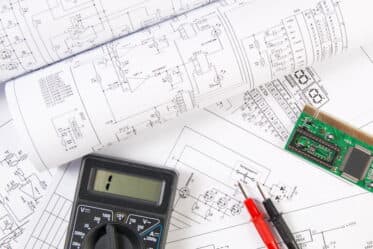Robotics Engineering: Course, Fees, Eligibility and Other Imp Info Here

Robotics Engineering is a multidisciplinary field that combines electrical engineering, mechanical engineering, and computer science to design, build, and operate robots.
In India, Robotics courses are offered at various levels, including undergraduate, postgraduate, and doctoral programs. Here are some key details about Robotics Engineering courses in India:


– Duration: 4 years
– Eligibility: 10+2 with Physics, Mathematics, and Chemistry
– Subjects: Robotics, Mechanical Engineering, Electrical Engineering, Computer Science, and Mathematics

– Top Institutes: IITs (Indian Institute of Technology), NITs (National Institute of Technology), and private universities like BITS Pilani and VIT University
Postgraduate Programs of Robotics Engineering
Postgraduate courses in Robotics Engineering are offered as MTech Robotics Engineering or ME Robotics Engineering. Details are mentioned below:
– Duration: 2 years

– Eligibility: B.Tech/B.E. in relevant discipline
– Subjects: Advanced Robotics, Artificial Intelligence, Machine Learning, Computer Vision, and Robotics Engineering
– Top Institutes: IITs, NITs, and private universities like IIIT Hyderabad and ISRO’s Indian Institute of Space Science and Technology
Doctoral Programs (Ph.D.):
Doctoral programs in Robotics Engineering are mostly known as PhD (Robotics Engineering) or Doctorate in Robotics Engineering. Details are below:

– Duration: 3-4 years
– Eligibility: M.Tech/M.E. in relevant discipline
– Subjects: Original research in Robotics Engineering, publication of research papers, and thesis submission
– Top Institutes: IITs, NITs, and private universities like IISc Bangalore and IIIT Hyderabad

– Fresher: ₹4-6 lakhs per annum
– Experienced: ₹8-15 lakhs per annum
Also Read – WBJEE 2024 Counseling: Last Day to Register and Fill Choices for BTech and Pharmacy Admissions
Growth Prospects:
– India’s robotics industry is growing rapidly, driven by government initiatives like “Make in India” and “Digital India”
– Increasing adoption of robotics in various industries, leading to high demand for skilled people in the field of robotics.
The above information is general and may vary depending on the specific institute or industry.
Additionally, there are many online courses and certification programs available in robotics, which can be pursued by working professionals or students.
Also, engineering in robotics may be offered as a separate discipline in certain colleges, while many others may offer robotics engineering as a specialization in some main discipline.
Eligibility for UG in Robotics Engineering
The eligibility criteria for BTech or BE in Robotics in India are:
1. Age: Typically, 17-23 years old (varies by institute)
2. Qualification: 10+2 (Higher Secondary) with:
– Physics
– Mathematics
– Chemistry/Biology/Computer Science/Electronics (varies by institute)
– Minimum aggregate marks: 55-60% (varies by institute)
Entrance Exams
Many institutions may ask for scores in the entrance exams along with the scores in qualifying exams while providing admission into robotics. A few popular exams are mentioned below:
– JEE Main
– JEE Advanced
– BITSAT
– VITEEE
– SRMJEEE
– COMEDK
– A valid score in the All India Engineering Entrance Examination (AIEEE)
– A valid score in the State Level Engineering Entrance Examination (SLEEE)
– A diploma in a relevant field (for lateral entry)
Please note that eligibility criteria may vary by institute, so it’s essential to check the specific requirements for each college or university one is interested in.
Additionally, some institutes may have additional requirements, such as:
– A strong foundation in mathematics and physics
– Proficiency in programming languages like C++, Python, or Java
– Familiarity with robotics software and hardware
– A passion for robotics and innovation!
It’s always a good idea to check with the institutes you’re interested in to confirm their specific eligibility criteria.
Eligibility criteria for PG
Courses in postgraduation in robotics engineering are offered as MTech Robotics Engineering or ME Robotics. Details are below:
1. Qualification: Bachelor’s degree in:
– Robotics Engineering
– Mechanical Engineering
– Electrical Engineering
– Electronics Engineering
– Computer Science Engineering
– Instrumentation Engineering
– Aerospace Engineering
– Biomedical Engineering
– or equivalent
2. Marks: Minimum aggregate marks: 50-60% (varies by institute)
3. Entrance Exams: Many institutes require scores from entrance exams like:
– GATE (Graduate Aptitude Test in Engineering)
– GRE (Graduate Record Examinations)
– PGEE (Postgraduate Engineering Entrance Examination)
– CCMT (Centralized Counseling for M.Tech. Admissions)
– A valid score in the All India Engineering Entrance Examination (AIEEE)
– A valid score in the State Level Engineering Entrance Examination (SLEEE)
– A Bachelor’s degree in a relevant field with a minimum of 2 years of work experience
– A Master’s degree in a relevant field (for Ph.D. admissions)
5. Additional Requirements: Some institutes may require:
– A strong foundation in mathematics and physics
– Proficiency in programming languages like C++, Python, or Java
– Familiarity with robotics software and hardware
– A passion for robotics and innovation!
– A research proposal or statement of purpose
– Letters of recommendation

Additionally, some institutes may offer MTech in Robotics with specializations like:
– Artificial Intelligence and Robotics
– Robotics and Automation
– Robotics and Mechatronics
– Robotics and Control Systems
– Robotics and Machine Learning
It’s always a good idea to check with the institutes you’re interested in to confirm their specific eligibility criteria.
Candidates can visit the official websites of well-known educational institutions to know more about robotics courses there before deciding to apply for it.
A few institutions may offer robotics as one of the specialization in automation engineering.
Engineering in Robotics can also be offered as a specialization in combination with other relevant or related subjects.
Candidates can undertake a research on the subject of robotics on online platforms or can visit the educational institutions offering the course in person to know more.
S Vishnu Sharmaa now works with collegechalo.com in the news team. His work involves writing articles related to the education sector in India with a keen focus on higher education issues. Journalism has always been a passion for him. He has more than 10 years of enriching experience with various media organizations like Eenadu, Webdunia, News Today, Infodea. He also has a strong interest in writing about defence and railway related issues.






